#amrev history
Text
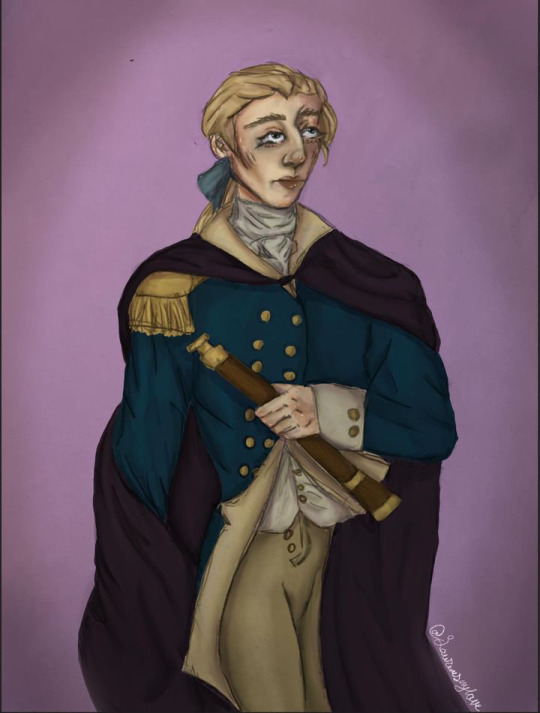

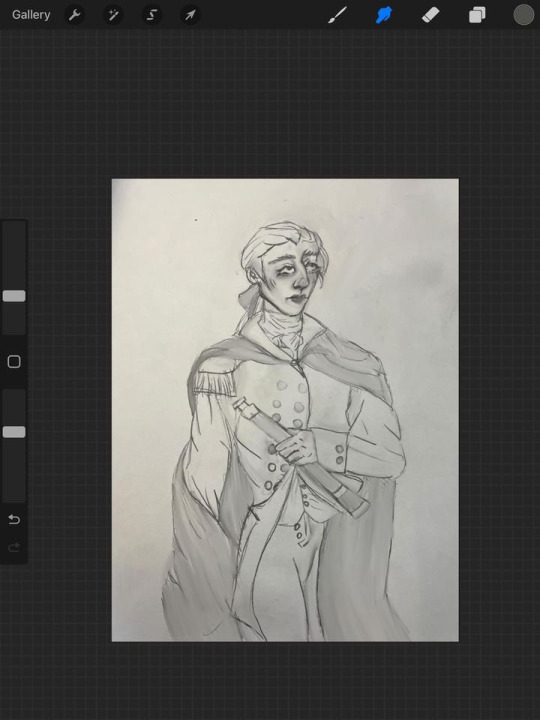
Repost from my insta, (@)laurensmylove (the username was taken here so I adopted my main’s username :)
Just some very stylized portrait stuff of mr John Laurens
#historical john laurens#john laurens fanart#john laurens#amrev history#history#amrev fandom#amrev art#alexander hamilton fanart#fan art#amrev#amrev memes#historical john laurens fanart#artists on tumblr#digital artist#artwork#artistsoninstagram#artist support#artistsuportartist
22 notes
·
View notes
Text

puppyfication of founding-fathers
#amrev art#amrev#art#puppies#amrev history#john adams#thomas jefferson#george washington#benjamin franklin#james madison#alexander hamilton#hamilton
296 notes
·
View notes
Text
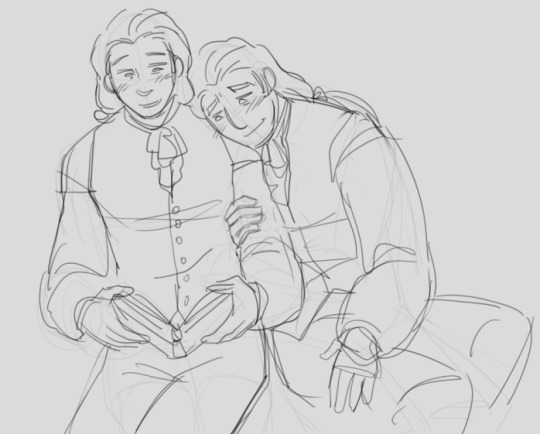
hiiiiiii
#historical lams#amrev history#historical john laurens#amrev#lams#john laurens#alexander hamilton#historical hamilton#historical alexander hamilton#hamilton fanart
189 notes
·
View notes
Text
I feel like we don't talk enough about how betrayed Hamilton must have felt when he learned Laurens abandoned his wife and child. Not just because they were lovers and John had lied, but because of the pain he experienced growing up without a father present.
#american revolution#amrev#amrev history#hamilton#historical fiction#alexander hamilton#lams#amrev fandom#laurens#historical lams
243 notes
·
View notes
Text
Welcome to my casting for the very serious, extremely scholarly, entirely unfounded, never once requested: Himbo-fication of the America Revolution TV Series that HBO should make asap.
Now, I think we’d all acknowledge there are some founding fathers we just can’t redeem or prettify, I’ve got opinions on them too, and their wives as well and much more, but for our current cause: I present what one might call: Founding Lads. Not all of them. Just the ones I’ve got weirdly settled opinions on. If anyone wants the whole script for this endeavor, it’s been rotting under my bed for seven years. By the time I get it produced these young actors will all be dead, but that’s that and not pertinent to the art of historical Himbo-fication
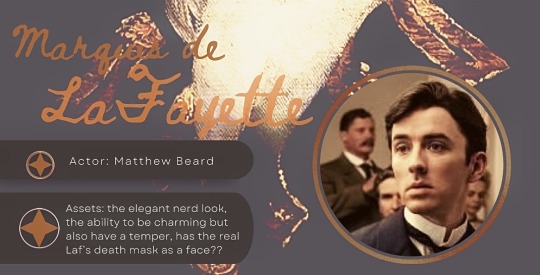


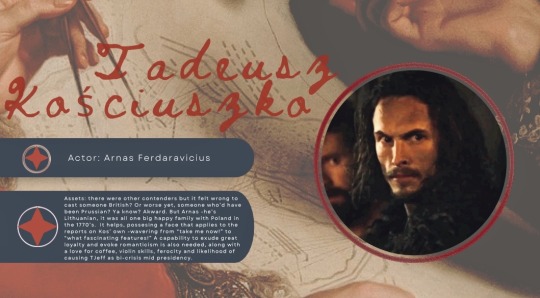
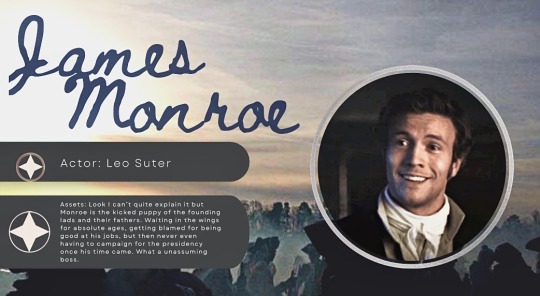
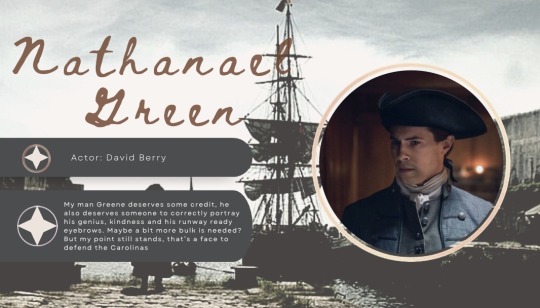
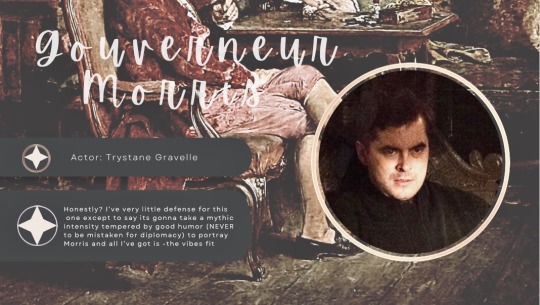
Now for this last one, I have neither a compelling argument nor a graphic, I simply ask you to imagine this amount of sass playing whichever favorite headache of George Washington’s staff that you prefer. My vote goes to Tallmadge.

#american revolution#amrev#amrev fandom#amrev history#amrev art#turn: washington's spies#turn fanfiction#turn amc#turn#john laurens#Tadeusz Kościuszko#Thaddeus kosciuszko#alexander hamilton#Hamilton#marquis de lafayette#lafayette#gouverneur morris#Nathanael greene#henry laurens#historical lams#lams#arnas fedaravicius#matthew beard#Tristan gravelle#David Barry#James Monroe#thomas jefferson#leo suter#benjamin tallmadge#anthony boyle
90 notes
·
View notes
Text
WAKE UP ITS HAMILTON TIME (hamilton pt 1)
everyone thank richard for getting me to put all my knowledge about alexander hamilton in one place. if you're at all new or confused, @thereallvrb0y once asked me 3 years ago to tell him everything about every historical figure i can, and since then i have been doing that. now we are onto the last one on the list he gave me, and studying hamilton is literally my life's work, so here it is. on tumblr.com. for free.
my sources for this are Ron Chernow and Hamilton himself and a strange amalgamation of knowledge from different museums, documentaries, interviews with historians, and other otherwise publicly accessible knowledge that i have compiled into the vast library inside my mind! you can find my notes in the link in my pinned post. let's go (this historical research is sponsored by the ghost of freddie mercury and my aunt who made me a whole pot of coffee)
Background Information
Ron Chernow loves to talk about how the island of St. Kitts and Nevis was formed, but that's not fucking important. What's important about Hamilton's birthplace is that it was positioned in the Caribbean in such a way that made it a very easily accessible port, however the coastline was pretty smooth which made it generally unideal for mooring ships.
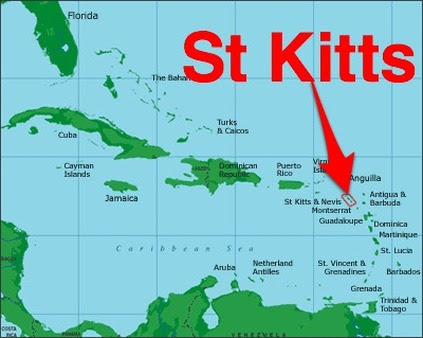
Source: The St. Kitts' Scenic Railway; Six Frigates: The Epic History of the Founding of the US Navy by Ian W. Toll, p. 112 ("Basseterre Roads was not a good natural harbor. It was little more than a dent in the otherwise smooth coastline that ran along the western side of the island. There was no pier- visitors were obliged to run their boats directly onto the beach, sometimes surfing in on waves that broke heavily as they reached the shore.")
Now, notice that St. Kitts and Nevis is, in geographic terms, to the right-ish of the Caribbean. That means when you're coming from Jolly Ole England, you might make a pit stop in St. Kitts and Nevis. So if you ignore the fact that the island has no natural harbor (at least not a good one), it might be a good economic prospect for a young merchant, right?
Well, not if that merchant is James Hamilton, because he was an idiot. And I say that lovingly, or at least more lovingly than Ron Chernow did. Ron Chernow also emphasized that St. Kitts and Nevis was filled with the 18th century version of Shameless, and also Jewish people. Ron Chernow might not hate Jewish people, but he does hate the character archetypes in Shameless. In Shameless terms, James Hamilton was like Frank Gallagher.
Disclaimer: knowledge of Shameless is not necessary to understand that being compared to a guy named Frank is not a good thing
I've already made posts about Hamilton's parents and brother (here, if you'd like to read that ig. weirdo), but I want to talk about the things that Hamilton would have learned from his parents. Later in life, Hamilton vaguely alluded to his father's failings in business being due to an excessive amount of generosity and not really understanding where he should and shouldn't spend his money. This did not by any means make Hamilton stingy with his money, or even smart, for that matter, but it did make him want to be something specific: independent.
James Hamilton's tragic flaw was his dependence on other people, whether it was his older brother or Rachel Faucette or his business partners, etc. Due to the position and order in which he was born, James was never destined to be a leader. He wasn't exceptional academically like other non-first-born-sons, such as James Madison, or dispositionally inclined to organize and inspire, like George Washington. He was just a dude, and he was a dude who was not built for 18th century society, especially not in the Caribbean. From what we can tell, James Hamilton was a gullible, moderately intelligent man with symptoms of autism and non-descript mental health issues. He was basically fucked from the get-go.
Source: Alexander Hamilton by Ron Chernow (p. 12-16); Papers of Alexander Hamilton, vol. 25, p. 89, letter to William Jackson, August 26, 1800 ("In a capacity of a merchant he went to St. Kitts, where from too generous and too easy a temper he failed in business and at length fell into indigent circumstances.")
Rachel Faucette was like James Hamilton's polar opposite. She was forced to learn how to provide for herself, not being able to rely on anyone, because that could be ripped out from under her feet at any moment, and the only thing concrete in her life was herself. She was a woman, and that was what most women had to learn at some point.
Rachel was also perfectly poised to be the clear moral guide for young Hamilton. When James Hamilton left, he basically sacrificed any reverence his son might have for him, and instituted Rachel as Hamilton's sole role model for his developmental years and i just burned the shit out of my hand with coffee.
Disclaimer: James Hamilton had nothing to do with me burning the shit out of my hand with coffee, I promise. You can't blame all your problems on deadbeat dads
If you're a Sigmund Freud fan, (good opener, I know), you're aware of the Oedipus Complex, and that's not exactly what I'm talking about, but yk. look it up. This theory proposed by Freud was only partially rejected by the psychological field (due to the fact that not everything is about wanting to fuck your mom and kill your dad, and also that's not the story of Oedipus Rex like. at all??), but the part that still rang true was that children do have a unique attachment to the opposite sex parent.
Psychological studies show that children tend to describe their opposite sex parents more favorably than same sex parents. Why? I don't know, I'm not a psychologist, I'm an 18 year old who drinks coffee like he was 5 kids to raise.
Source: "The Relation between Attachment to Opposite Sex Parents and Attachment to Romantic Partners" by Gary L. Grogan and Dr. Mary E. Pritchard, p. 10 ("However, most significant for the present inquiry were the findings that respondents described their opposite sex parents more favorably, and same sex parents more critically.")
This statistic is visible in Hamilton's descriptions of his parents, and must have been enhanced by James Hamilton's early departure in his son's life, the consequences from that which seemed constant, but also by the reputation his father had built on the island he left Hamilton on. Hamilton would grow up to see his mother not only providing for herself and her children, but also overcoming the consequences of James' actions, which provoked resentment towards his father, and admiration towards his mother. This will develop as a theme throughout his life, but we'll touch on that as he grows up. He isn't even born yet! So let's get on to that.
Source: so when I say Hamilton's description of his mother, I really mean HIS son's, but JCH most likely got this description from his father, Life of Alexander Hamilton by John Church Hamilton, vol. 1, pg. 42 ("...a woman of superior intellect, elevated sentiment, and unusual grace of person and manner. To her he was indebted for his genius."); for the sake of my reliability and reputation, I'll include JCH's description of his grandfather for comparison, Intimate Life of Alexander Hamilton by John Church Hamilton, p. 13 ("Hamilton's father does not appear to have been successful in any pursuit, but in many ways was a great deal of a dreamer, and something of a student, whose chief happiness seemed to be in the society of his beautiful and talented wife, who was in every way intellectually his superior.")
Early Life
Alexander Hamilton was born ginger on January 11, 1755, and I don't entertain the argument that he was born in 1757 because I'm not an anarchist and I believe society has laws (I'm actually lying, I'll talk about the birth year debate in the college section). Hamilton was not, however, born black or Jewish. He was also, potentially, born not James Hamilton's son.
"Wh- WHAT?! *cries*" I hear you say, and I know, it's shocking information, but yes. First off, Hamilton was not black in any percentage more than the Pillsbury dough boy is black. This theory comes from the fact that Rachel Faucette was a lower class woman and therefore we have no proof that she WASN'T partially black. I don't even have to dispute that for anyone with a gram of critical thinking skills to see that that isn't a valid historical hypothesis.
The Jewish thing has a little more merit to it, and there's a whole book about it that I haven't read. There is some evidence to suggest that Rachel Faucette's ex husband, Johann Lavien, could have been a secret Jewish person, and possibly caused Rachel herself to convert, and she tried to pass on that to Hamilton by having a Jewish woman educate him when he was a toddler (that last part is a true fact, and is the earliest piece of information we have about Hamilton's education). If this is true, (and it's nearly impossible to prove true or false because well if Lavien was a secret Jew, it was a secret), it did not impact Hamilton's religious beliefs in any way, and he identified as a Christian throughout his entire life.
We'll do a paternity test on Hamilton later, just hang tight. See, this is how I get you, I say something controversial, and then I don't talk about it until 16 paragraphs later.
Source: Alexander Hamilton by Ron Chernow, p. 9 ("A persistent mythology in the Caribbean asserts that Rachel was partly black, making Alexander Hamilton a quadroon or an octoroon. In this obsessively race-conscious society, however, Rachel was invariably listed among the whites on local tax rolls. Her identification as someone of mixed race has no basis in verifiable fact. (See pages 734-35 [this is in Chernow's Acknowledgments, and he just talks about how he used a paper trail to come to this conclusion, and thought genetic research would only confuse the evidence. He also discusses that there is a small chance that Hamilton fathered a black child named William Hamilton, but I can go ahead and tell you that's false due to the fact that Hamilton had just arrived in America when William was born -HWS]) The folklore that Hamilton was mulatto probably arose from the incontestable truth that many, if not most, illegitimate children in the West Indies bore mixed blood."); Life of Alexander Hamilton by John Church Hamilton, vol. 1, p. 42 ("...rarely as he alluded to his personal history, he mentioned with a smile his having been taught to repeat the Decalogue in Hebrew, at the school of a Jewess, when so small that he was placed standing by her side upon a table); Ibid., vol. 7, p. 710-11; Papers of Alexander Hamilton, vol. 26, p. 774, "Comments on Jews"
Hamilton's education began with his mother, who is almost definitely the person who made him fluent in French by the time he came to America. Despite limited access to books (34 books in both French and English to be specific), Hamilton still studied everything he could from a young age, with an early love for learning new things and proving that he was smarter than you. However, most of his education was in the School of Hard Knocks Community College, which was amply provided by the environment around him.
In the height of the British Empire, the Caribbean was essentially a social prison for anyone who broke the moral laws of the colonial, Eurocentric society of the time. This included pirates, prostitutes, drunks, thieves, and basically anyone who didn't fit the mold for a member of high society and/or someone who could serve high society and their lives of luxury. Hamilton, by birth, was one of these people.
Hamilton's father moved the family to St. Croix right before he left, which was a dramatic shift from Hamilton's life on St. Kitts and Nevis. In St. Croix, everyone knew Hamilton's mother as the disgraced ex-wife of Johann Lavien, and therefore knew her two sons as "whore-children", which was a word usually given to illegitimate children. Here, Hamilton was roped in with the degenerates of society, and it was practically said directly to him that he was destined to be unholy, unclean, worthless, and disgusting. Could you believe that this would have an impact on his mental health?
Along with seeing the poor lifestyles of the inhabitants of the Caribbean, Hamilton also saw glimpses into a very different world: ~rich people~. There were few rich white people on the islands, and they owned vast amounts of enslaved people, with the black to white ratio being 8:1 in the Caribbean. These enslaved people were forced to live in horrible conditions, and Hamilton saw it everywhere- his mother owned three people, but they were often rented out to garner profit for the white family, rather than working a plantation as others in the Caribbean did. Violence towards enslaved black people was only part of the violence young Hamilton witnessed in the Caribbean, some of which came in the form of dueling *insert ominous music*
Source: Alexander Hamilton by Ron Chernow, p. 18 ("To the extent that dueling later entranced Hamilton to an unhealthy degree, this fascination may have originated in the most fabled event in Nevis in the 1750s [a duel between two men where one of them was killed"); Ibid., p. 19; Ibid., p. 23-24
James Hamilton abandoned the family in 1765, and the reasons he did so are debated, but most likely are due to debt. However, there's another possibility that I've alluded to before: Hamilton's paternity.

So, remember, Rachel Faucette is not a perfect angel, and she also didn't particularly care for matrimony. There is a chance that she was with other men besides Hamilton and Lavien, and though we have no evidence that she was, there is an interesting character I'd like to throw into the mix.
Thomas Stevens, a moderately rich guy, was a merchant who lived on King Street in Charleston, St. Croix, with his wife Ann and his son Edward, who was born a year before Alexander Hamilton. Thomas Stevens was a very generous guy, and Edward Stevens would later be lifelong friends with Alexander Hamilton. And uh. They looked almost exactly the same. I really wish we had a portrait of Edward Stevens, but according to literally everyone, it was hard to tell the difference between him and Hamilton. Now, statistically, we all have some kind of doppelganger out there, but like what are the chances that they grew up down the street from each other and their parents had suspiciously close connections? Now, I'm not saying that Hamilton should have been Alexander Stevens, I think that's pretty irrelevant, but it is possible that Thomas Stevens... you... ARE THE FATHER!!!
Source: Alexander Hamilton by Ron Chernow, p. 27-28 ("Nevertheless, in the absence of direct proof, the notion that Alexander was the biological son of Thomas Stevens instead of James Hamilton would clarify many oddities in Hamilton's biography.")
The Hamiltons' life post-dad-desertion was actually somewhat comfortable due to Rachel's kickassery. She established a little store for a source of income, relocated a couple times, rented out the enslaved people (as one does, i guess, that's such a wild phrase), and kept a pet goat for milk and cheese and idk soap or whatever else people make with goat milk. Her sons would help out, possibly providing an origin for Hamilton's incessant need to be productive at all times without resting. At times, they were supported by his aunt Ann Lytton Mitchell, who he would remain loyal to until his death. During this time, as he was old enough to understand what his father did, is probably when his fiercely loyal, chivalrous and family-driven attitude developed.
Source: Alexander Hamilton by Ron Chernow, p. 22-23; Ibid., p. 28
I'm so hopped up on caffeine I could do a triathalon.
Hamilton and his mother were both afflicted by a strange and unspecified illness in the winter of 1768. The primary symptom was a severe fever, and they were treated with purgatives, medicinal herbs, and bloodletting. Nothing helped, and Rachel died at 9 pm on February 19. Hamilton miraculously survived.
Immediately, Hamilton and his brother James had everything they owned taken away, indebted by bills charged against them by local debtors. Their half brother inherited whatever else belonged to their mother, which brought up the marital scandal all over again, beginning a legal battle that lasted for around a year. In the end, the two Hamilton brothers were left with two things: jack shit and fuck all.
Custody of the two boys was appointed to their cousin, Peter Lytton. In my notes, I described him as "white trash" and "insane", including the quotes, so idk who said that. Peter Lytton lived with his black mistress and their illegitimate child. He killed himself on July 6, 1769, and what's strange about that is that we don't know if he shot or stabbed himself. I don't know who got confused about the difference between a knife and a gun, but that isn't my problem.
To make a bad situation worse, Peter Lytton didn't leave the boys anything in his will, and neither did his father, who did "his best" to help. His best could have been even just mentioning the name Hamilton in his will, but whatever, I guess.
These events held very important lessons for the young Alexander: 1) nothing lasts forever; 2) everyone dies; 3) the legal system is terrible; 4) rich people hate you; and, most importantly, 5) the only way out was up.
Source: Alexander Hamilton by Ron Chernow, p. 22-27
On His Own
This marked a split between Hamilton and his older brother, but this didn't seem to affect him as much as what happened with his parents- possibly because he wasn't biologically his brother, but I don't really care about that. What's more important is that Hamilton was almost entirely on his own, with inconsistent housing, so he couldn't always rely on the Stevenses. He was in a very similar situation that his mother was in at one time not long ago: alone and self reliant.
Hamilton was already working for the mercantile company, Beekman and Cruger. This company was later renamed, so I'll just say that Hamilton worked for Cruger, who was a business man with ties to New York. Hamilton worked as a clerk at this import-export business, giving him the responsibility to monitor intake and outtake as well as the organization of papers and just generally keeping everything in line. Due to the international relevance that was St. Croix, Hamilton often used French in his business dealings. Here, Hamilton perfected his handwriting into that elegant mess we know and can't read, picked up information on shipping/navigation, and learned his famously proficient math skills, particularly in relation to finance and economics.
Hamilton's famously maniacal work ethic began here, but so did his yearning for military valor. The first piece of personal correspondence we have from Hamilton is a letter to bestie Edward Stevens, and was made very famous from The Musical.

"Im confident, Ned that my Youth excludes me from any hopes of immediate Preferment nor do I desire it, but I mean to prepare the way for futurity. Im no Philosopher you see and may be jusly said to Build Castles in the Air. My Folly makes me ashamd and beg youll Conceal it, yet Neddy we have seen such Schemes successfull when the Projector is Constant I shall Conclude saying I wish there was a War.
I am Dr Edward Yours
Alex Hamilton (sic)"
Source: Alexander Hamilton by Ron Chernow, p. 29-30; Alexander Hamilton to Edward Stevens, November 11, 1769, St. Croix; Library of Congress, Image 13 of Alexander Hamilton Papers: General Correspondence, 1734-1804; 1734-1772
When Cruger left St. Croix for New York due to medical reasons in 1771, he left 16 year old Alexander Hamilton in charge of his primary source of income. And you're probably thinking that's a stupid idea. Because it is.
BUT ITS ALEXANDER HAMILTON. SO IT WAS FINE??? Well, fine for everyone besides the captain of the HMS Thunderbolt.
The Thunderbolt pulled into St. Croix's busy harbor after crossing the ocean and manned by a veteran captain, however Hamilton was not satisfied with the outfitting of the ship nor the quality of the goods that had been transported.
"Reflect continually on the unfortunate voyage you have just made and endeavor to make up for the considerable loss therefrom accruing to your owners." -Alexander Hamilton to Captain Newton, February 1, 1772
You can really see Hamilton's "I'm better than you and I know it" attitude shining through, made more shocking than ever than the fact that he was SIXTEEN YEARS OLD and talking to a man who was LITERALLY TWICE HIS AGE. The only reason he didn't lose his job over this is because he was right. The mules that had been transported were in such poor health, Hamilton had to pull strings to get them sold, and the wood was too waterlogged to be sold on the open market, so he sold it to a private buyer who was able to find something to do with them. He showed quick thinking, confidence in his abilities, and managerial skills. It was these skills that would later appeal to George Washington, not his financial abilities, and led to his most important appointment.
Source: Papers of Alexander Hamilton, vol. 1, p. 23, letter to Tileman Cruger, February 1, 1772 ("It would be undoubtedly a great pity that such a vessel [the Thunderbolt] should be lost for the want of them [cannons]."); Ibid., p.4, letter to Captain Newton, February 1, 1772; Alexander Hamilton: A Biography by Forrest McDonald, p. 128 ("Taken aback, Washington replied, 'I always knew Colonel Hamilton to be a man of superior talents, but never supposed that he had any knowledge of finance.")
Cruger's firm also engaged in the Atlantic slave trade, as did the majority of trading firms in the Caribbean and the American south. It was this exposure to the abhorrent conditions on slave ships and the violence African people faced in the triangle trade that shaped Hamilton into a vocal opponent of slavery- when it was convenient. More impactful was the fear he developed of slave revolts, as was very common in the Caribbean because of the disproportionate slave to free/black to white ratio in the islands, and this would later define his views on the French Revolution and public protest in general. He and Thomas Jefferson had this in common.
Hamilton continued studying books in his free time, and the local newspaper, the Royal Danish American Gazette, began publishing poems from an anonymous young writer- obviously it was Hamilton. His poems ranged in subjects, and aren't particularly good, but they're better than any poems I've written angrily in my journal about my evil exes, so that is to his credit.
Hamilton's poems took a religious turn, most likely traceable to the arrival of Reverend Hugh Knox, who took in Hamilton as a mentor. Clergymen were a hot commodity in the hell hole that was the Caribbean, and Knox had a lot of work on his hands, but he took a particular interest in Hamilton, specifically in getting him out of the aforementioned hell hole. He saw that Hamilton was incredibly intelligent and hard working, almost to a fault- he was probably the first person who was genuinely concerned for this dude's health over how much he worked.
Fun fact, Knox also had personal ties to the Burr family, but that is literally only a fun fact and not a sign that Burr and Hamilton were star-crossed lovers in fair Verona or whatever Chernow has deluded himself into thinking.
Source: Alexander Hamilton by Ron Chernow, p. 32-33; Ibid., p. 34
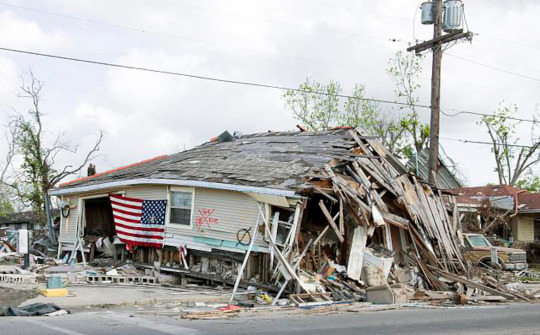
Source: National Guard Bureau, "Examining Lessons from Katrina 10 Years Later"
Then, a massive hurricane struck the Caribbean on August 1, 1772. It was incredibly damaging, causing mass destruction in St. Croix, and this is most definitely one that we in the south would evacuate for. Even my dad would evacuate for this one, and it took a lot of convincing to get him to evacuate for Katrina.
In reaction to this event, Hamilton wrote his famous letter to his father detailing and reflecting on the storm. And finally, I'm giving y'all my analysis of this letter that I keep saying I'll do. However, this post is already incredibly long, so I'm going to do it in a google doc and attach it here.
Source: Alexander Hamilton to The Royal Danish American Gazette, September 6, 1772
The letter was published to The Royal Danish American Gazette, which spread around the afflicted community. Knox's congregation gathered money for the anonymous young author (now not very anonymous) to sail to the American mainland for his education. Originally, Hamilton went to study medicine, due to the high demand for doctors in the Caribbean (his knowledge of anatomy would remain helpful throughout his life). However, at some point he decided he would not be going back to the Caribbean, and switched his focus to law, but we'll discuss that more in part two.
Source: Alexander Hamilton by Ron Chernow, p. 37-40
Well, there's part one. I did all of this in one day because um. I don't know, but it is now one in the morning and i have to wake up earlier than normal. so that's fun. i hope y'all enjoyed. shout out to my mom for proofreading half of this, and shout out to my aunt who gave me coffee, that was a horrible idea. i'll be back with part two at some point, which will probably be more concise because hamilton's childhood in the caribbean is where most of the theories are, so yeah. love y'all.
#alexander hamilton#history#amrev#american history#american revolution#hamilton#18th century#caribbean history#long post#research#heavy breathing#this is my career guys#do it for richie 💪#amrev history#i also watched like half of a chris chan documentary during this#and an entire markiplier playthrough#this is my spring break
39 notes
·
View notes
Text
Take on a young Frances Eleanor Laurens.
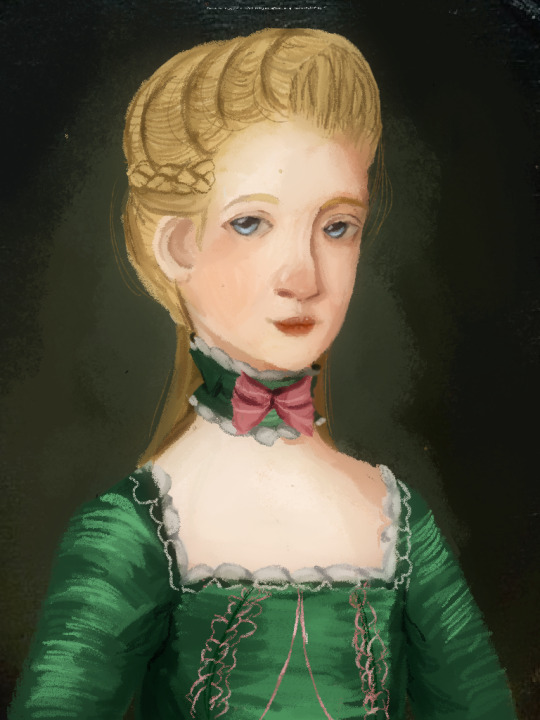
#art#historical john laurens#john laurens#frances laurens#frances eleanor laurens#hamilton musical#hamilton the musical#amrev fandom#amrev history#amrev#amrev art#history#historical#fanart#my art#does turn count or no#18th century#the laurenses
101 notes
·
View notes
Note
Can you tell me everything you know about Martha Jefferson?
I would love to. In my opinion, Martha Wayles Skelton Jefferson is one of the most tragic figures of the 18th century, and her life shows the many challenges a woman would face in this time period, due to the incredible expectations put on them. I'd like to open by saying that the importance of discussing women in history not only gives us a more full perspective on any and every historical event, but it also gives light to less commonly discussed historical figures that were equally important that we don't know as much about. Martha Jefferson is undoubtably one of those people.
Martha Wayles was born on October 30, 1748 to her wealthy father. Her father was an English immigrant who moved to America and accumulated a decent fortune through slave trading, planting, and his law practice.
Content warning: mention of sexual assault within slavery, skip next paragraph if this may be distressing
Her father is a very interesting figure. In his law practice, he specialized in debt collections, which made him very unpopular among the locals. Additionally, he raped an enslaved woman on his property several times, Elizabeth Hemmings, after the death of his third wife. She would have several children by him, including Sally Hemmings, who would later be raped and have several children by Thomas Jefferson. It is disgusting, but crucial to mention that because of the slave system in America, and the violation of African American women, Martha Jefferson was the half sister of Sally Hemmings.
Martha married Bathurst Skelton when she was 18. They would have one child, John, who died in infancy. Her first husband died six months before Jefferson married Martha, and her first child with Jefferson, Martha aka Patsy, would come nine months after Martha's first child. Her almost constant pregnancy and troubles in maternity would eventually lead to her death.
She married the very eligible bachelor Thomas Jefferson on New Years Day, 1772 at her plantation home, "The Forest". There was a five year age gap between them, as she was 22 going on 23, and he was 28. Jefferson would actually scarcely mention her first husband, and would even report false information that he did not exist, that Martha was a spinster when he married her. The motivations for this are not confirmed.
The young couple arrived at Jefferson's home, Monticello, during a snowstorm, where all the servants were asleep and the house was cold. They toasted their marriage with a leftover bottle of wine, and entered into a period of domestic happiness.
Martha and Thomas had complimentary personalities, balancing out each other's characteristics. They shared an interest in music, as Jefferson played the violin or the cello, and Martha played the piano or the harpsicord. She was said to be very talented.
While there is no known portraits of her, she was described as very beautiful and accomplished. She was slim with hazel eyes and auburn hair. She was the subject of frequent praise from all that knew her.
The Jeffersons had five children in ten years, but only two would survive to adulthood, Martha (Patsy) and Mary (Polly or Mary). Martha was under such strain from her frequent pregnancies that she fell very ill in 1781. The British had invaded Richmond, which forced her away from her husband back to Monticello, but Jefferson often left his political career to stay with her during her sickness. The British would raid Monticello, forcing her to travel in her poor condition yet again.
Her condition continued to worsen, until she died on September 6, 1782, at 11:45 AM at the age of 33. Jefferson would never record his relationship with her, so her life remains mostly a mystery among historians.
Martha Jefferson was far more than the deceased wife of the third president. During her life, she was the mother of several children, who frequently had to grieve their deaths. She was the mistress of a fashionable household, and the wife of an energetic, young politician who was making strides in the cause of liberty and American independence. Her life was riddled with tragedy and mourning, but she was a lively, creative woman who had an untimely death at a cruel age.
#american history#history#amrev#martha jefferson#martha wayles skelton jefferson#amrev history#asks#thomas jefferson#women's history#18th century#1700s
26 notes
·
View notes
Text
Forgot to feed yall
Sorry



I'll be making sure I make more art too :)
#historical john laurens#historical alexander hamilton#historical lams#historical gay people#american history#history#lams#alexander hamilton#john laurens#lams art#amrev fandom#amrev#amrev culture is#amrev history#amrev art#amrev culture is not giving a fuck#digital art#art#it looks bad#my art ig
503 notes
·
View notes
Text
Ooc: So… I made a fic about Alex and John, but it’s only semi-historical. John, Alex, and some of the events are historical, but other events are completely fictional. Also, it’s a bit rushed, which is probably my biggest flaw when writing, so I’m sorry about that. It starts at 1778 in 1st person (John’s) perspective. It’ll end in 1782.
#hamilton#hamilton rp#maria reynolds#hamilton musical#ask me anything#ask blog#asks open#james reynolds#writing#ao3 writer#ao3 author#ao3 fanfic#ao3fic#hamilton fic#amrev#amrev history#ooc post#alexander hamilton#john laurens#historical lams#lams#lams fanfiction#aspiring writer#aspiring author
21 notes
·
View notes
Text
The English were so petty, I can’t stop laughing. Research for writing purposes is fun!
youtube
youtube
youtube
#fic: anti hero#battle of Yorktown#american revolution#18th century#1780s#revolutionary war#amrev#amrev history#history#18th century history#late 18th century#turn: washington's spies#turn washington's spies#turn amc#amc turn#benjamin tallmadge#ben tallmadge#george washington#marquis de lafayette#alexander hamilton#Charles Cornwallis#history research#research#historical references#american history#french history#english history#european history#writing historical fiction#research is fun
55 notes
·
View notes
Text

#art#amrev#amrev history#thomas jefferson#history#historical fanart#alexander hamilton#hamilton#jamilton#historical hamilton#historical jamilton#hamilton jamilton
62 notes
·
View notes
Text
John Laurens is not appreciated as the comedic genius he is so here are two of my favorite quotes of his.
[John writing to his father about a fire in Charleston] “I deplore the misfortune of Charles Town if it has fallen upon Individuals of moderate fortune; if it affects only a number of rich men & will contribute to equalizing estates I shall not regret it.”
Like okay Comrade John!!
[John writing to his father TO REVEAL HE GOT A WOMAN PREGNANT AND MARRIED HER LIKE NO BIG DEAL I GUESS] “Will you forgive me Sir for adding a Daughter in Law to your Family without first asking your Consent. I must reserve particulars ‘till I have the pleasure of seeing you. My Wife M’ Manning’s youngest daughter promises soon to give you a Grand Child.”
178 notes
·
View notes
Text
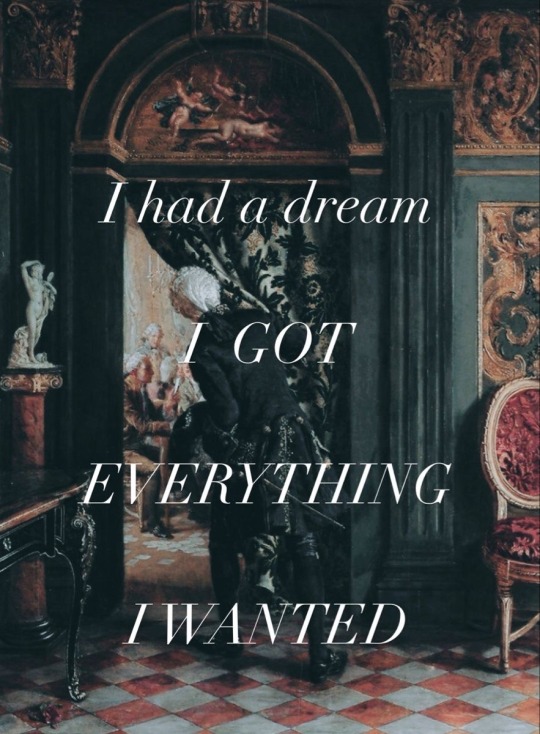
I pitched headlong back into my Lafayette feels tonight
#i dreamed I got everything I wanted … and it could’ve been a nightmare#mine#marquis de lafayette#amrev#amrev fandom#washette#george washington#george washingdad#turn amc#turn fanfiction#turn fandom#amrev history#amrev art#american revolution#french revolution#lafayette
30 notes
·
View notes
Note
RACHEL HAMILTON FACTS
Help I have a wax museum project for school and I’m doing her I cannot find anything about her
OKOKOK This ask is the reason I opened my inbox and discovered all my unanswered asks FSHSJKHFSKH mb. My source for this is Ron Chernow's Alexander Hamilton (because when isn't it) because exactly as you said, there is very little information about Rachel, and Ron walked so the rest of us could run. Here we go
Rachel was one of seven children
Five of Rachel's siblings died in childhood, leaving only our girl and her sister Ann. Ann went on to marry James Lytton after she fled Nevis (where they lived) due to an agricultural plague. Ann Lytton could not take in young Hamilton when he needed it, but she was the only blood relative on Rachel's side that he maintained contact with, and helped her out financially later on.
She was a child of divorce (basically)
Her parents had a very rocky relationship, and this possibly impacted her later relationships with men. Eventually, her parents separated, and she lived with her mother. She seems to have been very close with her mother, as they moved often together, or at least stayed close to one another.
She was previously married, and divorced
Before she met James Hamilton, she was married to man named Johann Lavien. Lavien was really horrible to her and financially and mentally abused her. When she ran away, Lavien sued for divorce, but long story short, Rachel didn't show up for court, and ended up being imprisoned for several years for adultery. The way divorce worked at the time was that a man could win a divorce case with just one accusation of adultery (especially if the woman didn't show up for court) but a woman needed several different, confirmed charges against the man to win. So, it would have been very hard for her to have won in the first place. Also, because of her no-show, she was forbidden from ever remarrying, hence why Hamilton was a bastard.
It is not incorrect to call her Rachel Hamilton and/or Rachel Faucette
While it is probably more respectful to use her maiden name, Faucette, there was a time where she lived as Rachel Hamilton, even though her marriage to James could not have been legally valid. While they lived in Nevis, James and Rachel lived with their two children as a married couple. However, it was when they moved to St. Croix that people recognized her as the former Mrs. Lavien, and tormented her and the boys with their illegitimacy.
She was a very independent woman
If Hamilton inherited anything from his mother, it was his quick thinking and independent mind. Rachel had her own income, and was able to provide for her two sons and tutor them after James left them. She was described by one of Hamilton's sons as "a woman of superior intellect, elevated sentiment, and unusual grace of person and manner. For her he was indebted for his genius." These are all words used to describe Hamilton later in life.
She supported other local women
In teaching her son in his earliest education, she chose a local Jewish woman to do so. Hamilton recalled being taught by her when he was small enough to sit on the table to read next to her. Towards her death, she was tended to by a woman named Ann McDonnell. In a society that was incredibly hostile to women, this was very important.
She died of an unknown illness next to her son, Alexander
She caught a fever in 1768, and was tended to by the aforementioned Ms. McDonnell and a man named Dr. Herring. She was given valerian, and bloodletting was used on Alexander (medicine of the 18th century is a whole other can of worms). Unfortunately, she did not recover, and died at nine o'clock on February 19, 1768.
Those are some of the most important and interesting facts, I believe, about Rachel Faucette. She is really one of my favorite historical figures, and I could talk about her and Maria Reynolds all day. I just love women who overcome the disadvantages they were given in life, I respect them so much. Hope this helps with your project!!!
#i got so excited when I saw this in my inbox#alexander hamilton#rachel faucette#rachel hamilton#history#amrev#asks#american history#amrev history#caribbean history#caribbean#womens history
34 notes
·
View notes
Text

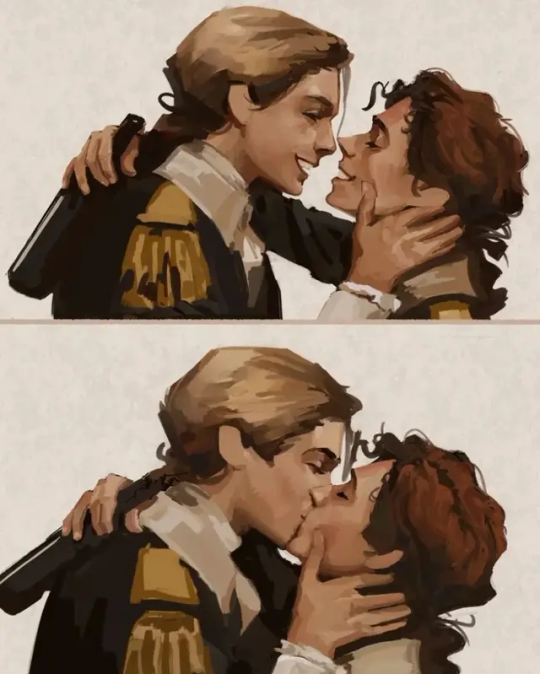
Since the moment we saw it, we wanted to recreate @depressedrevolutionariesinlove 's fan art (you can see it in the last pic), so at the last cosplay con we went, we asked our friend to shoot us some photos and this is what came out!
We're literally in love with the result!💖
Original fan art: @depressedrevolutionariesinlove
#amrev fandom#hamilton cosplay#alexander hamilton#hamilton#amrev#amrev history#historical john laurens#john laurens#lams#hamilton lams
44 notes
·
View notes